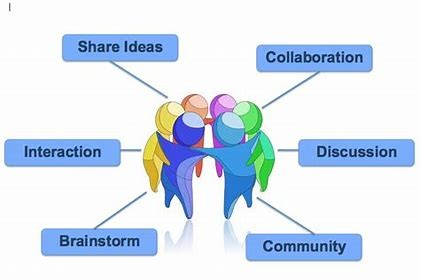
photo by google image
Cooperative learning is an educational approach that involves small groups of students working together to achieve a common goal. It is based on the idea that students can learn more effectively when they work together, as the process provides a supportive environment where students can learn from one another and build on each other’s knowledge and skills.
The key to cooperative learning is to control the learning process of learners, and not to use the final learning results alone to evaluate the effect of collaborative learning. Therefore, teachers should consider various factors when designing collaborative learning activities, such as the type of learning tasks, whether there is teacher guidance, whether learners are assigned roles
Cooperative learning can cultivate students’ various abilities, and the effect is remarkable, such as cultivating students’ creative ability, ability to seek different thinking, critical thinking ability, spirit of exploration and discovery, and ability to cooperate and coexist with others
In order for cooperative learning to be successful, it is important to establish clear goals and to provide support and structure for the groups. Teachers can also play an important role in facilitating the learning process and ensuring that each student has an opportunity to participate.
The effect of cooperative learning should be comprehensively evaluated according to the performance of learners in the process of collaborative learning, such as the common level of knowledge co-construction, emotion, attitude, and motivation of learners.
February 18, 2023 at 1:19 pm
Hi Ian! Thank you for your insights into cooperative learning. I appreciate that you outlined several factors for teachers to consider if they want to use cooperative learning in the classroom. It is a great idea to let students select the roles they want to play in the project. It would allow them to have a role best aligned with their skills and interests, which, in turn, can increase their engagement and strengthen interactions with peers.
In addition, you may want to add some specific activities instructors can use, some challenges they may experience implementing this method, and how they can address them.
What sources did you use when crafting your blog? Please also do not forget to provide an appropriate reference for the image.